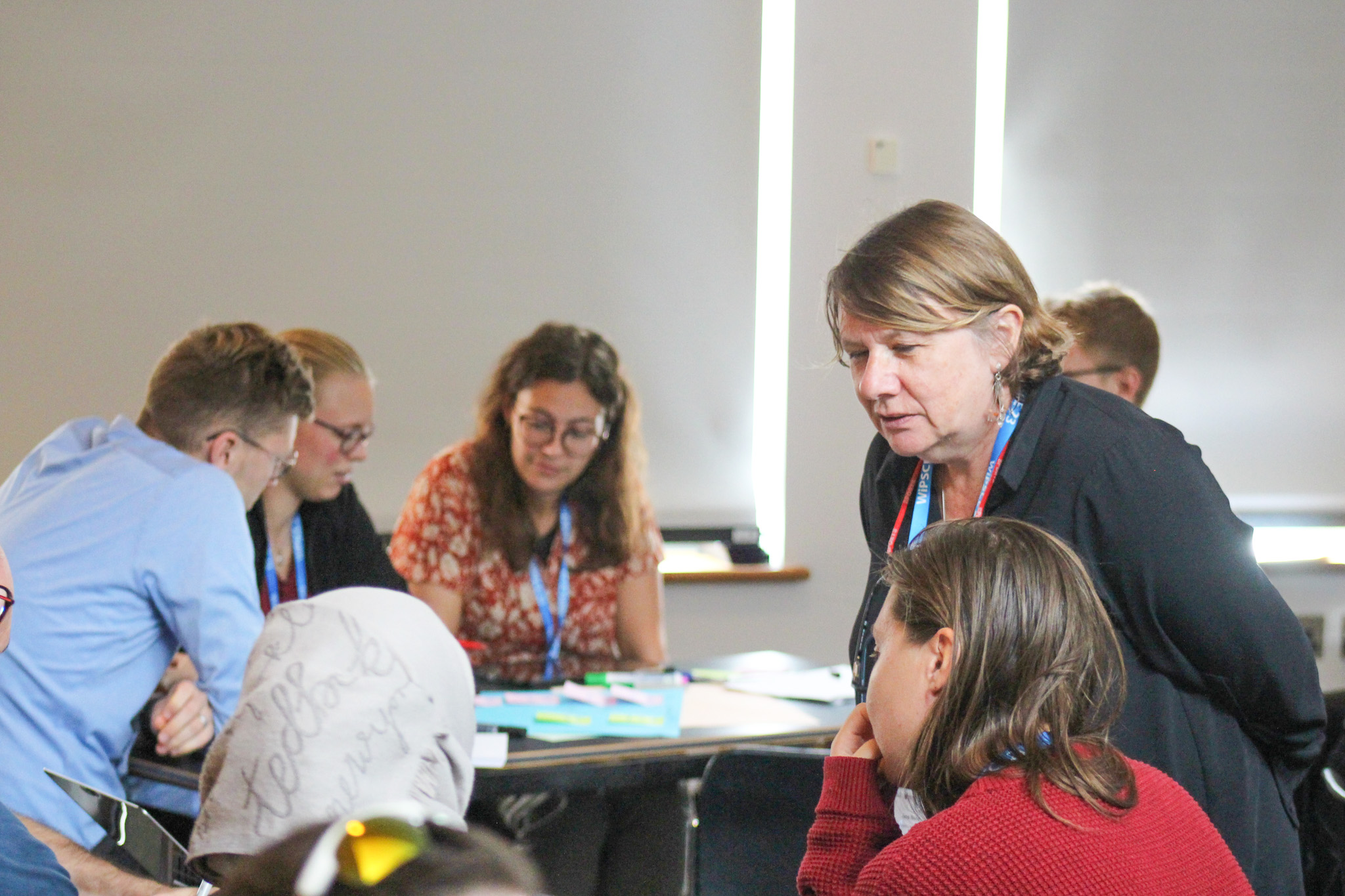We are initiating a small research project which involves working with computing classroom teachers on teacher research projects (sometimes called action research or classroom-based research). The motivation for this project is that we (as researchers) believe that partnerships between teachers and researchers reap huge benefits in the way that we collectively increase our understanding of effective teaching and learning of computing. The project is called Teacher Inquiry in Computing Education (TICE2). It’s called TICE2 because we previously carried out a similar project through Computing At School (log in to CAS needed to view), and we are drawing on lessons learned from that project.

Classroom-based research is an excellent form of professional learning for teachers as it’s directly linked to classroom and real-world issues. It also gives teachers an opportunity to make a contribution to research. The findings that you, as a teacher, gain from your project can add to everyone’s understanding of what works in schools. However, the world of research literature, data collection and analysis and writing up projects can seem daunting, and also impossible to find time for, so we believe that partnering with academics who have experience in these areas with teachers who have genuine problems to solve is a productive way forward.
Some teachers are already conducting small ‘action research’ projects as part of their school research interests; others might like to, but their school is not actively involved in action research, so you are not sure where to start. Whichever of these camps you are in, the purpose of this project is to provide some structure and support around the process. This is a small initiative, running as a pilot, and we are looking for a few enterprising teachers who might be interested in joining in!
What we can offer
We would like to hear from teachers who would be interested in conducting an action research project to address a particular issue, problem or interest within computing education. The actual research question is up to you. Here are some examples:
- Does using PRIMM in year X Python lessons help with the amount of time students get stuck?
- Does incorporating LLMs into homework tasks help with students’ writing about computing issues?
- Does incorporating culturally relevant examples into Year X computing teaching improve students’ engagement?
- Does holding department peer coaching sessions help with non-specialist computing teachers’ confidence?
- Does using the micro:bit to teach selection in KS2 support better learning outcomes?
These are obviously only examples. To answer your question, you may try an intervention (do something differently for a while or hold an event), or investigate an issue (survey or interview some students/teachers). The rough agenda is for you to decide on the research question in the next few weeks, carry out the project in the spring term, and analyse the results and do a brief write-up in the summer term.
The goal of the project is for academic ‘helpers’ to provide support to teachers conducting action research, and also to create a small community of computing teachers engaging in their own research. We will try to provide support when you need it, including gentle nudges, useful resources, academic expertise and encouragement as you carry out a small piece of research in your school. You may wish to join with another teacher to do this if you find you have a shared interest.
We have a number of academic and other helpers signed up who will be ‘matched’ to teachers and will provide you with help by email or calls. All helpers are volunteers. In addition, we will hold monthly optional webinars around the different stages of the research process – data collection, data analysis, etc.
The project will start with a workshop to discuss and decide on suitable research questions. The dates for this will be 27th November (online) or 5th December (Cambridge). Both will be from 4pm to 6pm and you only need to attend one. In May 2024, we will hold another similar workshop where the group of teachers can meet together and discuss the results of the project and plan ways in which we can work together to work on something to present at the CAS Conference (13th July 2024), as well as produce posters or infographics and a booklet representing the project. We hope that many of those participating will be able to attend the CAS Conference.
Our research
As researchers, we are interested in the process of teacher research in computing and whether it supports teachers to have more agency in the classroom. Teacher research is a form of CPD and has been shown to be more effective than attending workshops or more directed forms of CPD in improving teaching and learning. We will be conducting research as part of this project – so if you participate, we would be really pleased if you could complete two surveys (one in December and one in July) and participate in one interview (in mid-July). We will offer book tokens as a thank you for this participation.
How many teachers?
This is a pilot project, and we plan to work with 20 teachers from around the country, including a F2F group in the Cambridge area, given the links to CAS Cambridge. In the future, we’d like to expand the project, but this will depend on being able to attract funding. Primary, secondary, sixth form and FE teachers are all welcome.

Finally: the Teacher Research Network
The Raspberry Pi Computing Education Research Centre has established a Computing Teacher Research Network (TRN) bringing together teachers who are interested in research and linking them to academics conducting research. We anticipate that this will involve a number of projects over time, together with the sharing of information about research on a regular basis.
Joining the Teacher Research Network means you will have the opportunity to participate in computing education research projects as they arise. These projects may be around teacher research, as we are sharing today, but also may be opportunities to participate in somebody else’s research. We will also share updates from research that has been completed. To join the Teacher Research Network, sign up to our newsletter and tick Teacher Research Network on the form.